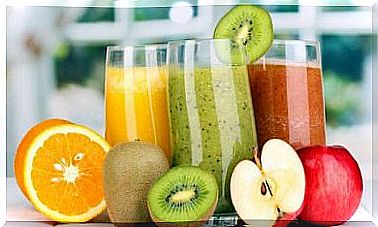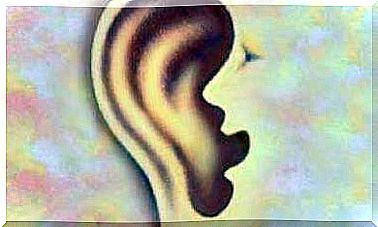The 15 Healthiest Prebiotics And Probiotics
Both prebiotics and probiotics promote healthy digestion and strengthen our immune system, because they support the physiological intestinal flora and prevent the multiplication of harmful bacteria
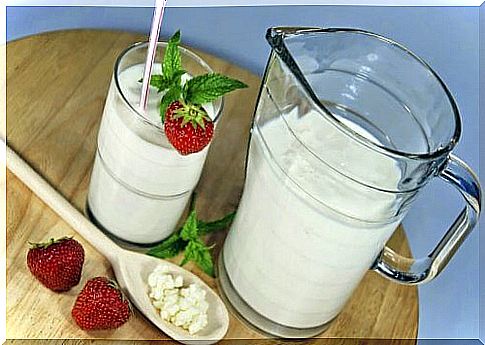
Prebiotics and probiotics are not the same thing. Sometimes we confuse them with each other or we are not really clear what the difference between the two and their respective specific benefits is.
What they have in common, however, is the fact that the daily consumption of prebiotics and probiotics is very important for our health.
Thanks to these two tools, our digestive tract can function and our immune system is able to prevent infections.
Our health depends on these two tasks, because deficits in digestion and defense can result in a variety of diseases.
We are sure that you will find the following information about prebiotics and probiotics useful, and that you will put some advice into practice without hesitation.
Prebiotics and probiotics are not the same thing
Let’s start with the lesser-known term, prebiotics.
You know for sure that your intestines depend on the cooperation of its bacterial flora to digest your food.
What do these bacteria live on? From different substrates, which are summarized under the term prebiotics.
You are probably familiar with some commercials promoting yogurt that has been fortified with “healthy bacteria”.
Those bacteria are probiotics and they are traditionally found in yoghurt, but also in sauerkraut or in dishes made from it. These bacteria directly support the intestinal flora.
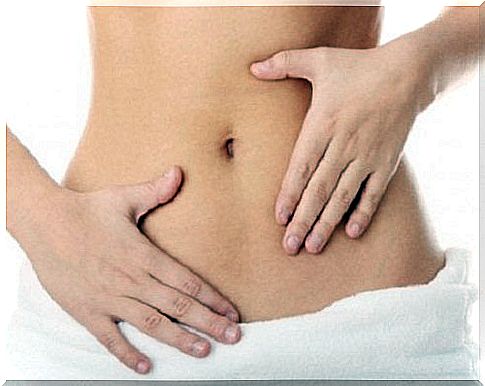
Prebiotics
- Prebiotics serve the bacteria in the digestive tract (and thus also the probiotics!) As a substrate.
These are food ingredients that we cannot digest, but on which the microorganisms in the intestine are more or less dependent.
- Prebiotics strengthen the “good bacteria” which in turn inhibit the growth of the “bad bacteria”.
This means that they play an important role in the immune system, because the excessive growth of pathogenic germs can lead to serious problems, even outside the digestive tract.
- The consumption of prebiotics ultimately leads to an improved absorption of minerals such as calcium and magnesium.
This results in an overall improved digestion in which flatulence, constipation and other digestive problems occur less frequently.
Probiotics
- The World Health Organization (WHO), which recently hit the headlines with its findings on processed meat and cancer, defines probiotics as living microorganisms that, given in sufficient quantities, can promote our health.
- These are intestinal bacteria. Without these bacteria it would not be possible to digest the food consumed at all. We recommend consuming probiotics in their natural form.
- Perhaps one or the other is frightened to think that their intestines are colonized by a multitude of bacteria.
In fact, that’s already the case, because without the microorganisms that aid our digestion, we could hardly exist.
The intestinal flora itself is subject to changes that it experiences as a result of our diet, our lifestyle, possible stress and the use of medication.
- These intestinal bacteria work on the front line, on the intestinal mucosa, as an immune defense. One of their most important tasks is to prevent the excessive reproduction of pathogenic germs.
- The consumption of probiotics, for example in the form of fermented milk products, protects us from a variety of diseases.
The emphasis is on fermented milk products, because the milk itself often does not get along very well with our intestines and its intestinal flora.
Anyone suffering from lactose intolerance will notice after consuming milk that digestion is not working as it should.
Prebiotic foods that can be enjoyed day in and day out
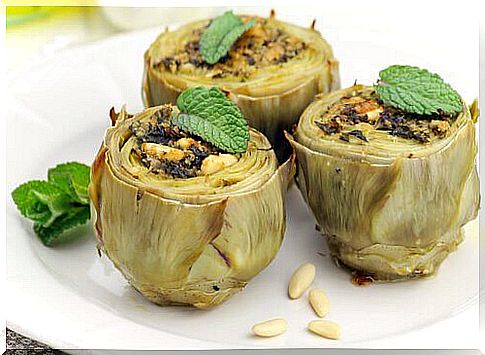
artichokes
Artichokes are not only good for our liver. They are also excellent prebiotics. They contain significant amounts of inulin, an important prebiotic.
Chicory root
The food that comes second in terms of prebiotics such as inulin is the chicory root.
You can buy them in organic stores and use them in both food and tea preparation.
garlic
Garlic is also rich in inulin. What do you think of having a clove of garlic and a glass of water every morning ?
Your health will benefit from it!
onion
The onion, eaten raw or cooked, also supplies your body with inulin.
leek
Inulin, this important prebiotic, is also found in the leeks. By consuming these delicious vegetables, you support your intestinal flora.
Wheat bran
Wheat bran is also a food that is high in prebiotics and therefore deserves a place on your diet.
wheat flour
Wheat flour should be boiled and not consumed in excess in order not to gain weight, but to provide the organism with prebiotics.
banana
If you love bananas, reach for this yellow fruit as often as you like!
Compared to the foods mentioned above, it contains only small amounts of inulin, but it can be combined excellently with these foods, for example .
In this way you bring variety to your diet, support the intestinal flora and do a lot for your health!
The best probiotics for everyday consumption
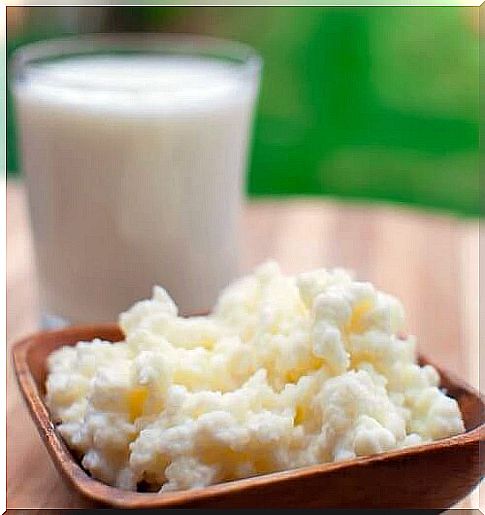
kefir
- Kefir is fermented cow or goat milk. It tastes sour and, unlike pure milk, is simply good for you. Because during the fermentation process, the milk sugar is almost completely converted.
- This probiotic can be consumed in liquid or in the form of kefir grains and goes very well with breakfast.
- Kefir is one of the foods that has the highest content of living microorganisms. This promotes the health of the intestines and organism.
- Those who regularly consume kefir effectively inhibit the growth of pathogenic bacteria in the intestines. In addition to gastroenteritis, these can also cause many other diseases.
sauerkraut
- After kefir, sauerkraut is probably the second best food to strengthen our intestinal flora.
- Sauerkraut is fermented white cabbage, sometimes also pointed cabbage, which contains many bacteria of the genera Lactobacillus and Bifidubacterium.
- Sauerkraut supports the physiological intestinal flora and helps maintain the pH value in the small intestine . The function of various digestive enzymes depends on this .
- Sauerkraut is rich in vitamins A, B1, B2 and C and in minerals such as calcium, magnesium, iron and phosphorus.
More foods that have probiotics in them
- Natural yoghurt
- Miso soup
- Kombucha
- Olives
- Dark chocolate
